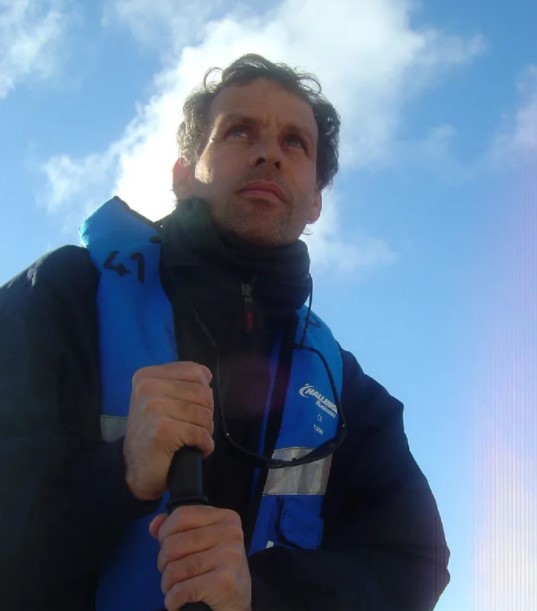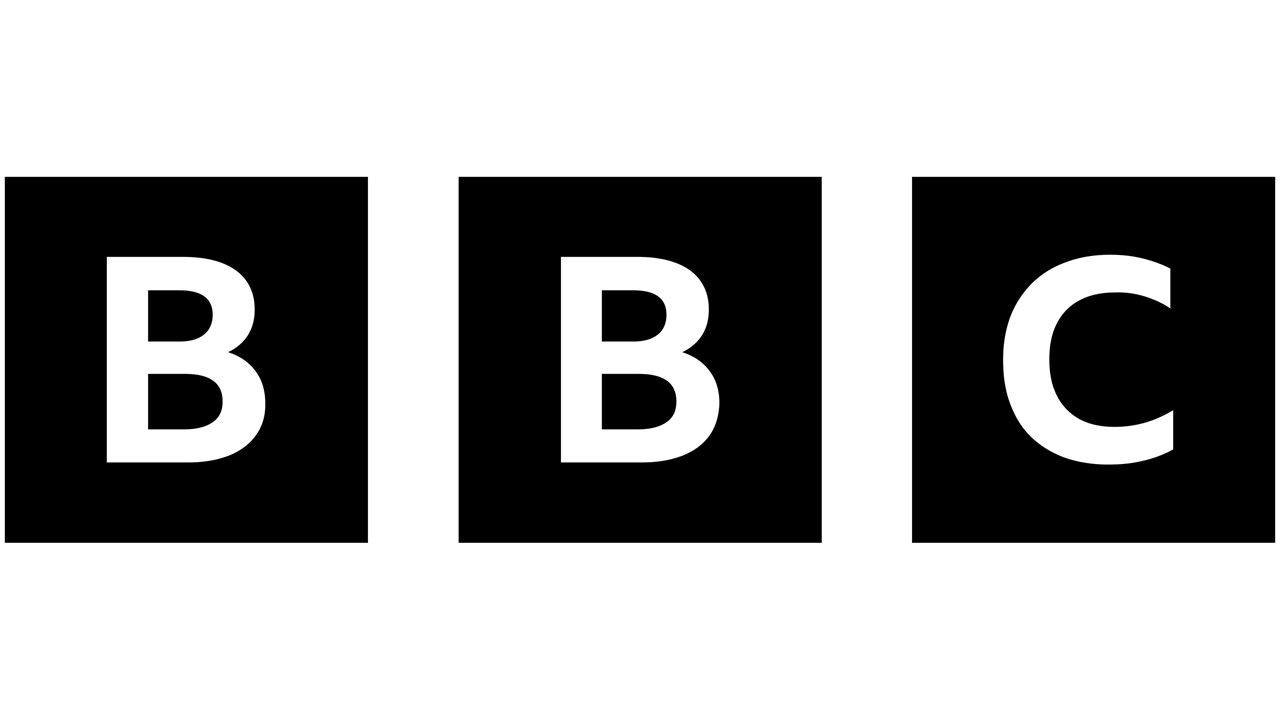Brideshead Revisited
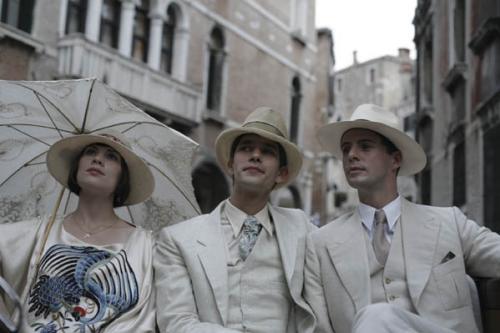
How does the new film of Brideshead Revisited compare with the classic TV series? That’s what everyone wants to know – and, frustratingly, I’m not in a position to say, at least not definitively...
A confession: I’ve never seen the legendary 1981 TV version of Evelyn Waugh’s celebrated novel. I know everyone still raves about this epic adaptation as a glittering pinnacle in a supposedly golden age of broadcasting, but despite my love of the book it somehow passed me by. (See here for another example of my lamentable failure to keep up with TV greats.)
Yet having just seen the new movie, uninfluenced by its illustrious predecessor, I have this week got hold of a copy of the newly reissued DVD of the TV series and have managed to watch the first hour … only another 10 to go…
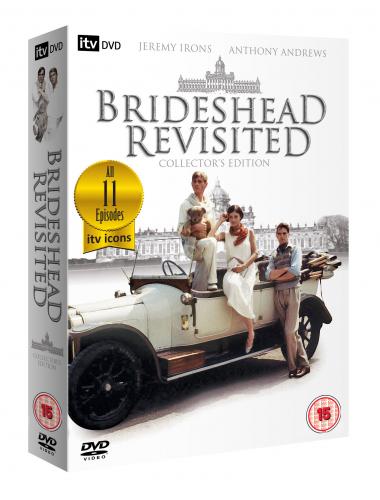
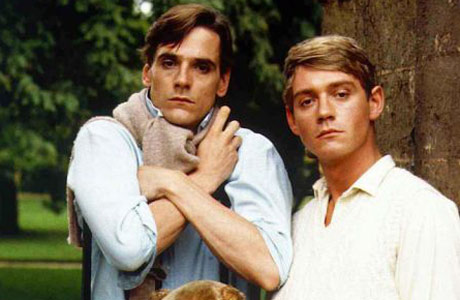
Watching it has been a revelation.
IT’S SO SLOW!!!
My memory’s hazy here, but did television viewers of the early 1980s possess superhuman patience? Was there nothing else on? Had remote control gizmos not been invented?
The TV Brideshead moves at a pace so languorous it would be overtaken by the most sluggish of glaciers. At a shade under 133 minutes, the new film positively zips along by comparison.
The latest updates, reviews and unmissable series to watch and more!
In its defence, however, the series does appear, on my brief acquaintance with it, to be painstakingly, even obsessively faithful to the book. Unsurprisingly, the movie plays fast and loose with the text; but more of that later. In the TV version scene by scene follows the original narrative diligently, while huge gobbets of Waugh’s prose are reproduced in the voice over of Jeremy Irons’ Charles Ryder…
Which brings me to the casting.
On the big screen, Matthew Goode plays the role of Ryder, the middle-class young man who falls for his charismatic fellow undergraduate at 1920s Oxford, Sebastian Flyte, the wayward younger son of a family of aristocratic Catholics, and later becomes infatuated with his friend’s sister, Julia.
Is Goode any good? He certainly looks the part (he even slightly resembles Irons at times, with a dash of Rupert Everett thrown in too) and he furrows his brow strenuously enough in an effort to express Charles’s unease, but he can’t match the anguished longing that Irons gives the part.
But it’s the casting of Ben Whishaw as Sebastian that will have fans of the TV series spluttering in dismay.
For all his qualities as an actor, Whishaw is simply not pretty enough to play Sebastian, who Waugh describes as “magically beautiful”. On the small screen, even on the basis of the little I have seen, Anthony Andrews appears the very embodiment of the book’s doomed golden boy.
Doomed, and gay, the movie unapologetically conveys. Yet when it comes to Sebastian’s friendship with Charles the film turns coy. The novel, if you read it closely, is quite clear on the nature of their relationship, but the movie hurries Goode’s Charles through his attachment to Sebastian to land him safely in the heterosexual arms of Hayley Atwell’s Julia, violently compressing and distorting the book in the process.
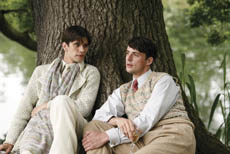
But it’s the new film’s treatment of the novel’s Catholic theme that is its biggest failure. Waugh’s stated purpose in writing the book was to show the “operation of divine grace on a group of diverse but closely connected characters”. In other words, his characters stray from God but are reeled back to the faith in the nick of time. Now I’ve no time for Waugh’s half-baked version of Catholic theology, which seems to be even more punitive than that preached by his fellow convert novelist Graham Greene, yet Waugh’s beliefs, repugnant though they may be, create a compelling tension on the page.
On screen, a miscast Emma Thompson in a white wig is the story’s steely enforcer of Catholic orthodoxy, Sebastian and Julia’s mother, Lady Marchmain. She’s such a monster that the film comes perilously close to turning into an Invasion of the Soul Snatchers, as one by one the story’s errant characters sacrifice any chance of personal happiness and succumb to the dead hand of their ancestral faith.
A film critic for over 25 years, Jason admits the job can occasionally be glamorous – sitting on a film festival jury in Portugal; hanging out with Baz Luhrmann at the Chateau Marmont; chatting with Sigourney Weaver about The Archers – but he mostly spends his time in darkened rooms watching films. He’s also written theatre and opera reviews, two guide books on Rome, and competed in a race for Yachting World, whose great wheeze it was to send a seasick film critic to write about his time on the ocean waves. But Jason is happiest on dry land with a classic screwball comedy or Hitchcock thriller.
